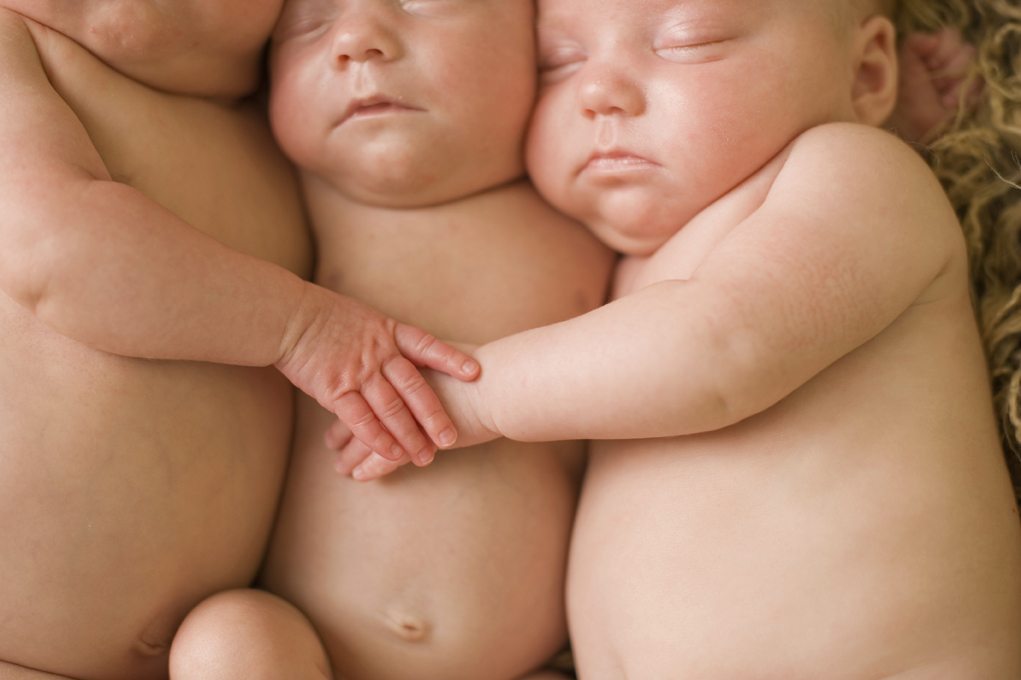
Multiple births are rarely planned, but they are a reality! The splitting of a single zygote or fertilised egg causes monozygotic, or identical twins. Identical twins may share a placenta but will normally have their own amniotic sac. Conjoined twins occur when identical twins fail to separate. Non-identical twins, or fraternal twins, are more common and involve two fertilised eggs. Each twin will have their own placenta and amniotic sac. Triplets or any higher multiple births can be identical, non-identical or a combination of both.
When will I find out if I am having a multiple birth?
You will find out if you are having twins (or more) by week 12. The chances of having twins are greater if you are a fraternal twin, if you have had IVF or another fertility treatment, or if you are an older mother.
How will it change my pregnancy?
Having a multiple birth will mean more frequent ante-natal check-ups and your health will be monitored carefully. There will be more emphasis on certain nutrients i.e. folic acid, calcium, iron, protein and other essential nutrients. You will need to gain more weight. If you have a healthy weight prior to your pregnancy you should aim to gain between 37 and 54 pounds (17-25 kilograms). You should also take more precautions, for example, limiting some activities such as work, travel and physical activities. The gestation period for multiple births will also differ; if you are having twins, your pregnancy is likely to last around 37 weeks; for triplets, your gestation period will be around 34 weeks; and if you are having quadruplets it will be approximately 32 weeks.
What complications can occur in multiple births?
The following complications are associated with multiple births:
HIgh blood pressure
When high blood pressure is combined with a high protein count in the urine, this becomes preeclampsia. You are also at a higher risk of developing anaemia.
Premature Birth
The more babies you have the less likely you are to carry your pregnancy to full term. If you start to show signs of preterm labour, a steroid injection can be given to speed up the development of your baby’s lungs. Complications of premature birth include low birth weight, breathing and digestive problems, and underdeveloped organs.
Delayed interval delivery
This is rare. Delayed interval delivery is when one baby is delivered premature, while the other baby/babies are able to continue development in the uterus.
Twin-twin transfusion can occur in identical twins. A blood vessel in the placenta connects the babies’ circulatory systems, causing one baby to receive too much blood, and the other to receive too little. This may require aggressive intervention, and the babies will be delivered as soon as the benefits of a premature delivery outweigh the potential problems.
Caesarean sections are generally suggested, especially in the cases of triplets or higher. With twins, however, if the first baby is in the head down position, vaginal delivery is often possible. Sometimes complications can arise after the first delivery and a C-section is needed for the second twin.
maternity & infant
Originally posted 2018-02-20 15:59:06.






